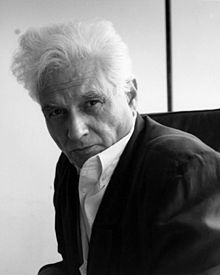There are many differences between the Hebrew God and the gods of other ancient Near Eastern civilizations. However, perhaps the most important distinction between the God of Abraham and the gods of the Hittites, Egyptians, Sumerians etc., is the fact that the God of the Israelites is said to have created ex Nihilo, that is out of, or from, Nothing. Unlike the typical mythology of a multiplicity of gods fighting and the death of one of the gods meaning the birth of creation, the Jews provide us with a tale of a single god, speaking all of being into existence.
Existence is a state of being, or rather the state of Being which precedes all other states of being. Existence, in the purely objective sense, that is, not considering consciousness, could easily be equated, in Christian terms, with Creation, because everything that is exists, and if there is a creator, a position which Christians must necessarily hold, what is has been created, thus Creation. However, there is no necessity that we should exist, and there is no necessity that God should create (as was stated by the First Vatican Council). This creates a problem. We exist, but we don’t have to, and perhaps shouldn’t exist. This was the problem that plagued 20th century German philosopher, Martin Heidegger. So, if we don’t have to, and maybe shouldn’t, exist, then why do we? In other words, if God doesn’t have to create, then why did he? Out of Love. God creates, purely out of Love, the desire of another for the sake of the other alone, and as such all things are held in existence by Love. Being is, and is continued solely by God’s Love.
So, since God creates ex Nihilo and does so purely for the sake of Love, then we have two opposing forces, Nihilo and Love, or Good and Evil, or if you will, Being and Nothingness. This, however, does not present a sort of dualism, for Nothingness does not truly exist, for anything that exists is not Nothingness, it is intrinsic to the nature of Nothingness. Since Nothingness doesn’t, technically, exist, as it is the absence of Being, we only know Nothingness through the absence of things we know ought to be. This is privation. Sin is privation. So, in a sense, Sin is Nothingness. But Nothingness is not an action, for action requires Being, and so Sin is not, in a sense, an action, but an acquiescence, the ultimate acquiescence. It is an acquiescence against the God who loves us and thus creates us and holds us in Being, it is thus an acquiescence back into the Nothingness.
The opposite of this acquiescence, within the human experience, is suffering. To love is to act against the acquiescence ad Nihilo, concupiscence, or the tendency to desire a return to the Nothingness and non-Being that “exists” without the Love of God. This act against the acquiescence and towards the Love of God which is the foundation of Being causes suffering, in its moral sense, or anguish.
Thus, to suffer in Love is to participate in the Creation of God, the Love of God; it is to exist! The “eternal wound of existence,” as Nietzsche puts it, is just that; existing.
Existing is a wound, a suffering, because it means acting against, fighting against, making war, not against all, but against the abyss of Nothingness which is Sin.












